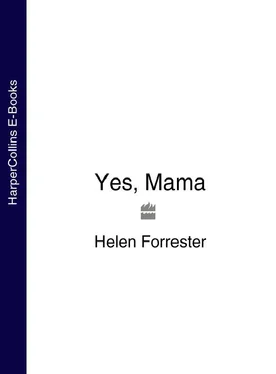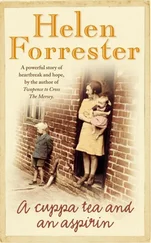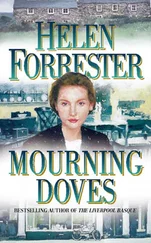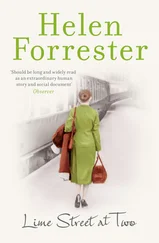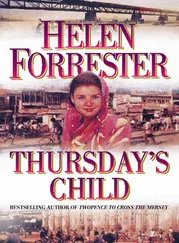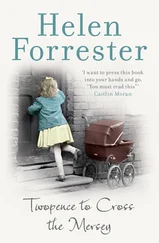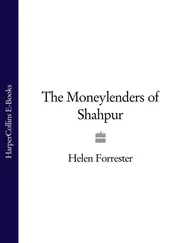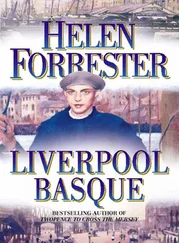1 ...6 7 8 10 11 12 ...20 It was Fanny who danced out into the street to find a cab to take Florence home. She took her time because it was so lovely to be out in the afternoon sun, and, when she found one, Florence gave her twopence for her trouble.
Florence was thankful that her mother had insisted on giving her the money to pay for the cab; otherwise, she would have had to take the horse-bus again. Though Elizabeth had great faith that the Reverend Clarence Browning would make his way upwards in the Church and would, in due course, be able to afford a carriage, Florence was acutely aware that he was far too outspoken, far too direct, ever to be recommended for high office. Florence herself was content to preside over the little vicarage they occupied, thankful that a man so intent on the saving of souls had managed, in spite of church politics, to rise to a vicarage. She asked no more – except for a nanny.
In order to conserve her strength for the coming confrontation with Humphrey, Elizabeth tried to take a nap in the afternoon, but she was so filled with anxiety that she returned to the morning-room in time to take tea and to receive Polly and Alicia.
Alicia was hungry and was screaming. Elizabeth inquired of Polly if she had everything she needed for the child and then sent her thankfully back upstairs.
When Humphrey bowled swiftly into the dining-room for dinner, his white-faced wife was already seated, and Maisie, the parlourmaid, was hovering over the laden sideboard.
Humphrey ignored both of them. He indicated that he was ready to be served by simply shaking out his table napkin and spreading it across his stomach. In complete silence, Maisie served them both.
Never a man to waste anything, Humphrey ate his way stolidly through soup, roast beef and steamed pudding. He knew, as his wife had already sensed, that this was the evening to make clear his attitude towards Alicia, who, like his wife, he had hoped would either miscarry or be born dead.
Impotent rage surged through him. Hemmed in by the constrictions of social propriety, he was certain there was not a great deal he could do about the situation without coming to grief himself, and this knowledge added to his boiling anger. He helped himself to hot mustard and cursed under his breath when the condiment stuck to its spoon. He banged the tiny spoon on the side of his plate and in the tensely quiet room it sounded like a pistol going off.
Elizabeth kept her eyes down and picked uneasily at her food. Her mind leaped wildly between fear of Humphrey and heartbreak that she had not heard from Andrew.
She jumped when Humphrey asked for a second helping of pudding and more wine. Really, the man ate like a hog. The only thing he seemed to notice in the house was when Mrs Tibbs’ cooking was not up to its usual standard.
Humphrey had, indeed, not noticed for months that his wife was pregnant. When he did, he had hastily checked his office diary. It told him with certainty that the child could not be his. Plump, comfortable Mrs Jakes kept him so exhausted that he had rarely slept with his wife. Elizabeth had not seemed to care about his neglect.
Elizabeth had been more than thankful to be relieved of her wifely duties. Her lifelong friend, Andrew Crossing, had been only too willing to meet her needs, since his wife was a useless invalid. As Maisie took away her untouched roast beef, she thought agonizedly of how she had rebelled against marrying Humphrey, how passionately she had loved her childhood playmate, Andrew. At nineteen, Andrew had had no money and had failed his first year at University; her father had been adamant that he was not suitable for her. In contrast, at twenty-five, Humphrey was already well-established with his father, in a brokerage business and, as the elder son, he was to inherit the entire enterprise. What her father had not realized, Elizabeth fulminated, was that Humphrey was not only physically repellent to her, but also had the hoarding instincts of a jackdaw; his ambition was to accumulate capital to invest in shipping or railways. He lectured her regularly, from the days of their unhappy honeymoon onwards, on the fact that capital accumulated by personal savings was the only sure way to expand a business. Money made in a business should be ploughed back in. He had rationed her and, later, poor Flo, to two pairs of black woollen stockings and one pair of white silk every winter of her married life; any extra ones had had to be bought out of the money left her by her father. And he still went over Mrs Tibbs’ account books with her each month and railed at her for waste.
It had taken twelve months of unmitigated pressure by her parents to make her marry him, twelve months during which no other young man had been allowed to get more than a single dance with her and she was never left alone.
It was Andrew himself who finally had broken her resolve.
At a banquet and ball given by the Mayor, Mr Gardner, to celebrate the marriage of the Prince of Wales to Princess Alexandra of Denmark, he had pushed his way through the throng, to find her sitting demurely beside her mother and her aunt, while her bearded father and his brother had gone to join their friends for a drink. He had formally asked for a waltz.
Her mother had answered frigidly for her. ‘Elizabeth’s programme is full, I am sorry.’
Elizabeth, faced with the handsome, blond, young man, had said desperately, as she handed him her tiny programme, ‘I have one more dance to fill, Mama.’ Two chaperones sitting near were watching the little exchange with interest, so, rather than cause a public fuss, her mother had said no more.
They had hardly taken a dozen steps, after Andrew came to claim her, when he blurted out, ‘It’s no good, Liz. I’ve tried to get the old man to persuade your father to allow an engagement, with no luck at all. He’s furious with me for muffing my exams, and he’s insisted that I begin all over again in law. Law’s what I always wanted to do, anyway, but he was dead-set on my entering the church, so I had to do Divinity.’
‘I can wait for you.’ Elizabeth remembered her utter despair when she had realized that Andrew himself was backing out.
As they whirled amid the colourful throng of dancers, she had looked up at him and seen the tremulous uncertainty in his face; he had always been weak, she thought bitterly, as she contemplated her steamed pudding, and in her heart she knew without doubt that he had again deserted her. She wished that Mrs Macdonald had not been quite so skilful, and that she had died having Alicia.
Her reverie was broken by Humphrey’s saying to Maisie, The Mistress will take her tea in the drawing-room.’
Elizabeth swallowed. Humphrey was choosing the field of combat, the upstairs room from which loud voices were least likely to be heard by the servants.
‘Yes, Sir. I’ll ask Fanny to make sure the fire is made up.’
While Humphrey ate his gorgonzola cheese and biscuits there was a flurry in the kitchen as a swearing Fanny fled upstairs with a shovel full of burning coals from the kitchen fire, to start a fire in the drawing-room. She had been so sure that the room would not be used that evening, there being no visitors, that she had not bothered to light the fire.
Elizabeth thought resignedly, ‘So be it. What does it matter?’ and went up to sit by the struggling blaze. Though it was May, the room was cold and clammy. Outside the tall, velvet-draped windows, a fine rain was falling. Elizabeth picked up a shawl and flung it around her shivering shoulders.
If Andrew had been anything but a family lawyer, she would have taken a chance and run to him now, told some suitable story to his fragile, rheumaticky Eleanor, and simply stayed with him, daring him to say a word. But in his profession, he dealt with the Estates of a number of widows, with Trusteeships like her own dowry. The slightest hint of scandal and he would lose a lot of business.
Читать дальше
